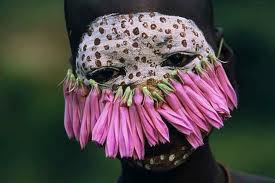
Religions have played an irreplaceable ethical role in the slow passage of humanity from the cave-man mentality to the more civilised concepts of today, which are, if not always practiced, at least generally accepted. They have also furnished their members with a vital sense of belonging and usually also meaning, which has made a key difference for millions. World-renowned authors like Karen Armstrong (A History of God) have brilliantly stressed their major contributions to our progress as a race.
But religions have very much had their shadow side, from the Crusades and the conquest of the Americas, the greatest genocide in history – 60 to 100 million died as the result of the colonisation done in the name of the ‘very Catholic’ (but not very compassionate) Kings of Spain, to the psychologically incredibly crippling side of various guilt theologies built on totally bizarre and sometimes very sick metaphysical constructs. In the medieval ages and even later, tens of thousands were burned to death because their beliefs varied slightly from the politically correct views of the hierarchy.
And still today, fundamentalist teachings of every hue – Hindu, Jewish. Christian, Islamic… to mention but a few – represent the very antipode of the word religion – from the latin re-ligere – which means to bind, to unite.
A sense of meaning
One can define religion as a corpus of beliefs, rituals and practices which unite a community of believers in a common pursuit of ‘salvation’ or ‘enlightenment’. Spirituality on the other hand is an individual pursuit of a sense of meaning and developing a personal relationship to some transcendent power (whatever you choose to call it – the Universe, the Creator, Unconditional Love, the Cosmic Mother, or even that word so fraught with misunderstanding, ‘God’.) I know people who are profoundly ‘religious’ but who do not express an ounce of authentic spirituality, just as I know agnostics and even atheists who express an overflowing compassion and spirit of service, which are among the hallmarks of authentic spirituality it would appear.
Today, we live in a very different world from the so-called Axial period which gave birth to some of the world’s major religions. Because many religions and churches are so stuck in old ruts, new forms of spiritual practice are popping up left, right and centre. Many of these new forms of spirituality are not attached to any religious organisational structure or guru, any set theology or ritual, but are sometimes impacting people’s lives much more than traditional practices or beliefs.
Truth is love lived
Jesus once stated ‘He that doeth the truth cometh to the light’. This is the most powerful statement of truth I have ever come across: truth is a certain quality of living, not a ritual or the expression of a theologically correct viewpoint. More than anything else, truth is love lived. ‘Truth lived’ characterizes the world’s innumerable Mother Theresas caring for the world’s street children, orphans, the diseased, poor and prostitutes, whether they are atheists or nuns, not the theological statements claiming that never will a woman be a priest.
This movement toward a redefinition of spirituality in lay terms is growing in strength, to the extent that this year the first European (world?) meeting on lay spirituality will be held April 3-5 in Tours, France (see www.jisl.fr French-language only).
The Art of Blessing is an example of this new spirituality, the essence of which is a practice (‘doing the truth’), not formulas or rituals. (Rituals can be positively divine if imbued with meaning, just as they can be a soulless, desiccating practice.) For over 20 years, I have had returns from people of all walks of life on the whole planet (including one militant atheist) expressing immense enthusiasm for a practice that often fundamentally changed their life. Blessing Circles have just started surfacing. These include the community aspect of religions so needed in a world which fosters solitude and isolation to a disturbing extent. The aim of these circles is to help heal the world, and participants gather regularly to ‘work’ on specific world problems through the practice of blessing. (I will soon be writing a whole piece on these circles, as soon as their website is ready). Members come from all walks of life, and all religious (or non religious) backgrounds. They are a kind of worldwide ‘Intention Experiment’ – an idea brilliantly explained in Lynne McTaggart’s book with the same name [170221] – and a perfect example of what I mean by ‘lay spirituality’.
Religions will continue, but without the monopoly they enjoyed so long. And I believe that arcane theological debates on whether a woman who has committed an abortion, or a believer who has left his faith will go to heaven or not will be replaced by a lay spirituality, based on the understanding of a universe governed by spiritual laws which are universal, dependable and hence ‘scientific’. Its authority will rest on the consistency of lives lived with love more than correct theology. Such a spirituality will be much more about practice than belief.
Much love, Pierre Pradervand
pierre@vivreautrement.ch
Click here for Pierre’s recommended title, The Compassionate Samurai, by Brian Klemmer.
Click here to purchase The Gentle Art of Blessing, by Pierre Pradervand.



